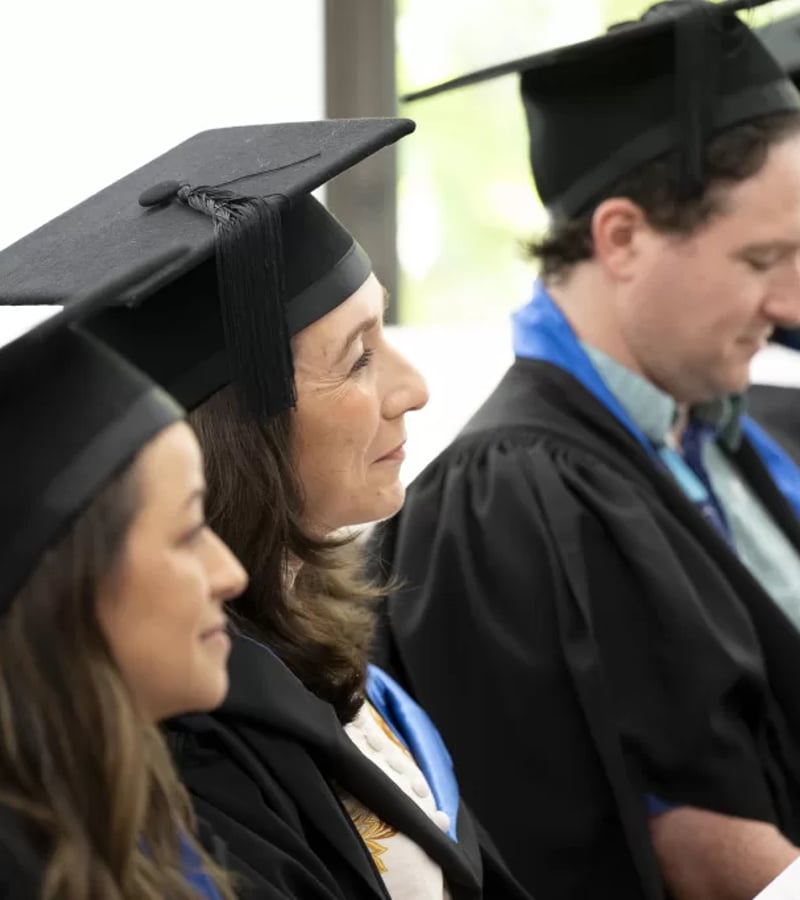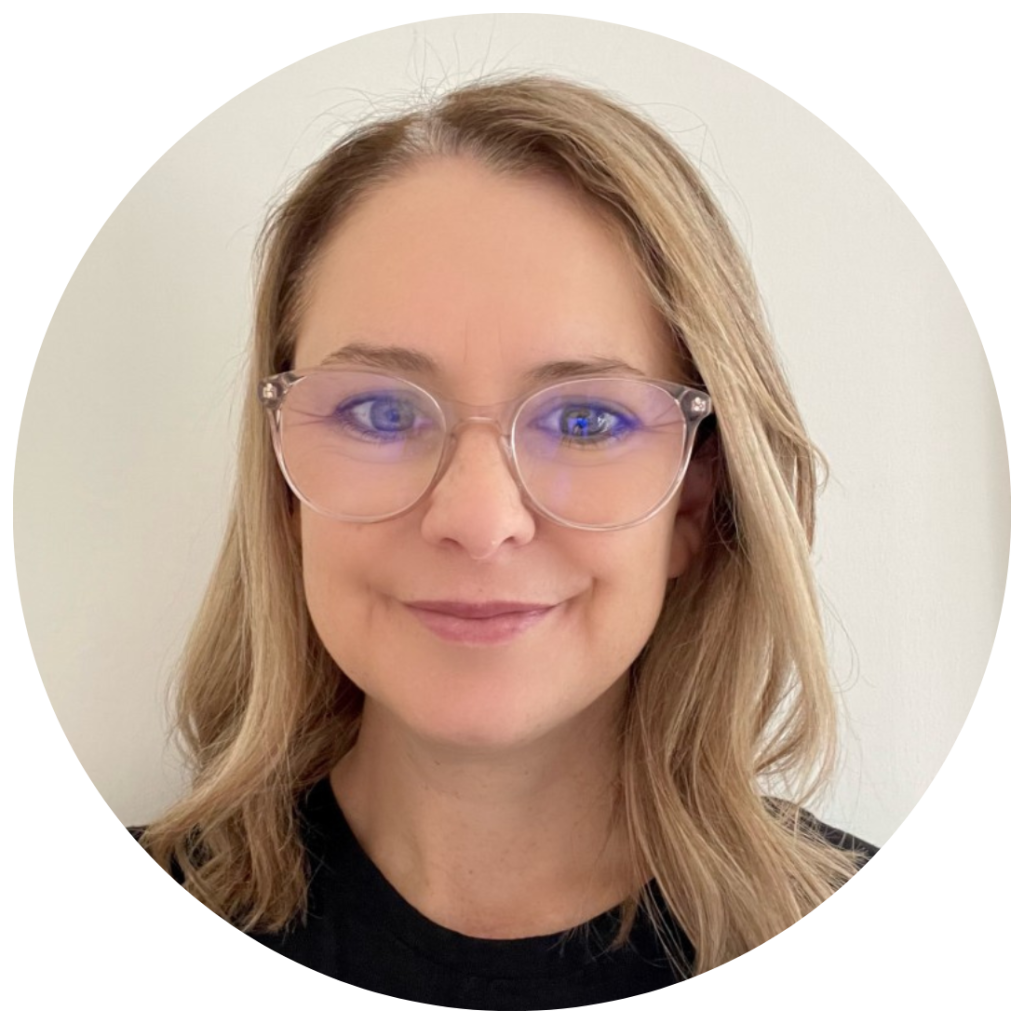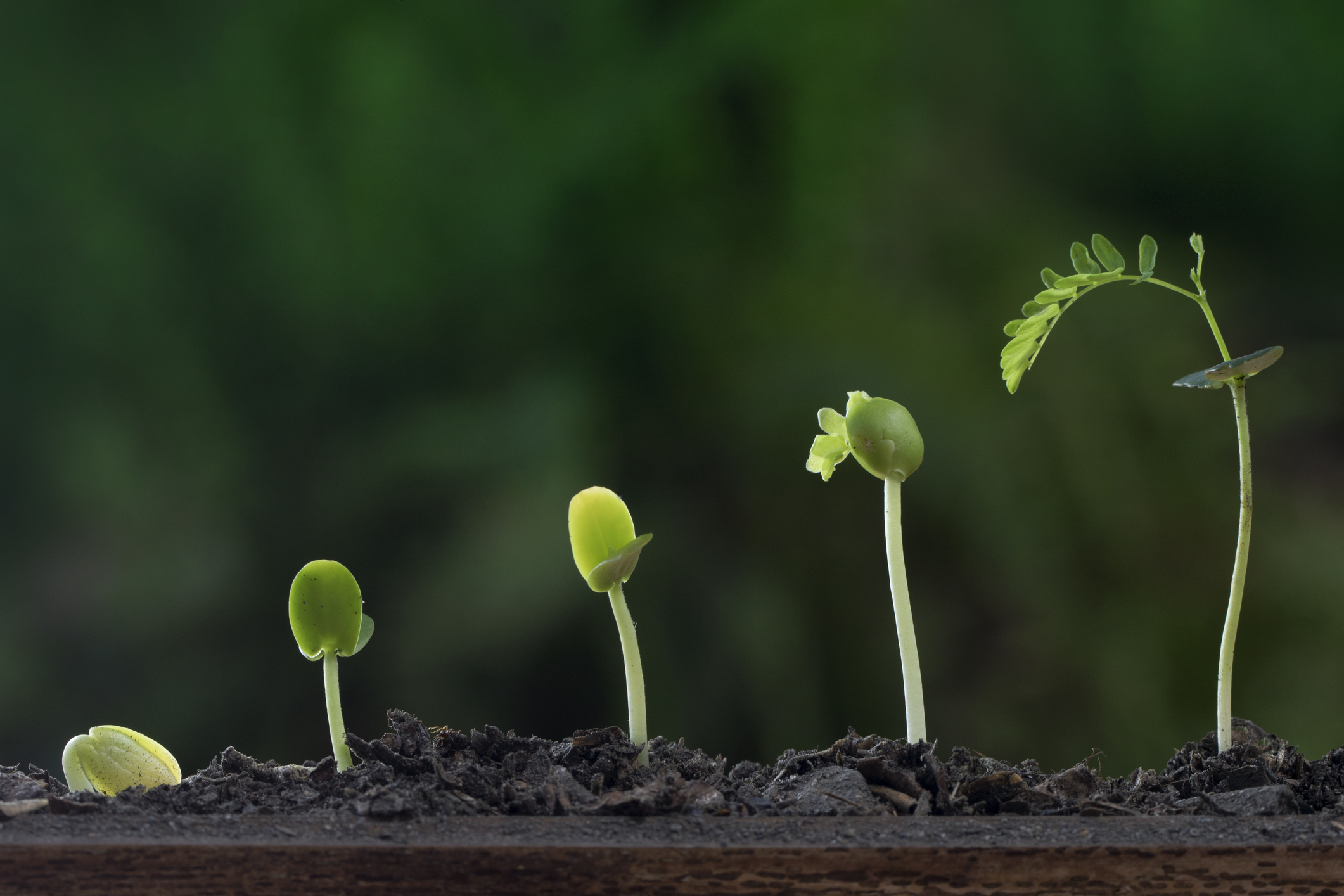
Address to the 2023 graduands

By Rhianna Perkin, alumnus, 2021 recipient of the John F Newton Award for academic excellence
Thank you for having me tonight – it is such a privilege to be speaking to you and celebrating with you.
In thinking about what to say tonight, what I would share with you, I thought I would draw on an approach my best friend took when I gave birth to my daughter – the sharing of the three quotes to live by….
“this too shall pass”
“do what you have to do to get through”
“don’t strive for perfection – you just need to be good enough”
No, just kidding, whilst these might hold some insights, they are the parenting mantras my friend gave me. Whilst there are many many useful concepts and quotes connected systems psychodynamics, the one I found myself often drawing upon and still come back to is from Bion.
Bion said “to dare to be aware of the facts of the universe in which we are existing calls for courage”.
Let me share with you some of my journey and why I have found this so useful. Almost 5 years ago, I had a conversation with my supervisor at the time about what was next in terms of my career development. I told him I was really interested in understanding more about teams and groups and the dynamics that I had seen play out. My supervisor gave me a couple of names to google as he had come across their work and thought it might be a good fit. The names were John Newton and Susan Long. Of course, it didn’t take me long to find NIODA from there. The following day I had submitted an enquiry, a brief conversation with Wendy Harding the day after that, and four weeks later I found myself sitting in a large room with four chairs in the centre facing each other (one of them empty and representing an absent classmate I had met once) and being told to “study the dynamics of the group as they arise”. This was a far cry from the lectures I attended in my previous studies…had I landed in some sort of rehab or group therapy by mistake? And how was I meant to “study the group dynamics” when there was only myself and one other member present?
What I haven’t shared here is that in between that fateful conversation with my clinical supervisor and sitting in that very small study group, I was told that my work role was being made redundant. This was a huge shock to me. I’d been with the organisation for over 10 years and, whilst I had taken up many different roles, I had in fact only worked for two organisations. It felt a bit like being told I was being kicked out of home. I wondered if stepping into further learning was the best idea right now.
Carl Jung once said, “until you make the unconscious conscious, it will direct your life and you will call if fate.”
I felt my connection to NIODA was fate. What I didn’t realise then but have come to understand is that curiosity and learning is my port in the storm. When I feel at sea, I fear being lost forever, so I seek stability in the wisdom of others. Perhaps you too can think of times in your life when you have felt at sea – is that what brought you to NIODA? Fortunately for me (not least because COVID-19 would hit Australia 6 months later) a role was created for me and I was able to continue to work as an internal consultant whilst I studied. I had found my port for now and dropped anchor.
But it wasn’t just in the beginning that courage was needed. Studying in this field requires courage. Not just to return to studying whilst juggling work and other aspects of our lives, but because studying in this field requires us to look internally in order to make sense of what is happening externally. It requires us to develop negative capability – the ability to tolerate the uncertainty, the doubt, the not knowing. It requires us to acknowledge that our own behaviour may be “in service of the group” in a way that might leave us feeling manipulated, powerless. And yet it is often through these vulnerable moments, when we are able to lean into discomfort, complexity, and confusion that we learn the most.
This courage to lean in, with curiosity and an openness to understanding more deeply, has never been more necessary than now. In organisations, in Australian society, around the world, we can see evidence of defensive reactions to complex problems – the desire to look away or stick our head in the sand is strong. This is where systems psychodynamics comes in, where you come in!
But we cannot go it alone. I recall that when I sat where you are two years ago, I found myself really struggling to be fully present with the various speeches and celebrations. I was experiencing a bundle of conflicting, intertwined emotions. For example, on the one hand I was incredibly excited to have finished the program and proud of what I had achieved, but I was also nervous for what the future might hold, how I would go out into the world on my own with this new lens? How would I remember it all? Would it enable me to work with organisations to create change? Somebody really needed to remind me that Bion also said “without memory or desire”!
The reality is that you are not alone. You are part of one of the most unique and special communities of thinkers and practitioners – a community that speaks your language, shares your courage to lean into discomfort and complexity, and will willingly give their time to reflect and explore with you. I have a memory of Brigid suggesting in a session on how to reference in academic writing – think of yourself as in conversation with the authors of the papers you are drawing upon. We are not just in conversation with them now – we are part of that community – attempting to make sense of the messiness together. I hope I am speaking your “unthought known” here!
Upon finishing my studies, I was head-hunted for a role consulting to the corporate sector. This was a huge stretch for me, away from my for-purpose roots! This time I set sail with the knowledge that I was part of a community that I could draw upon, laugh with, learn from and grow with in an ongoing way. I’ve often drawn upon my learnings, applying the thinking in coaching and my consulting work. I’ve also drawn upon the community for supervision, peer reflection and further learning. It’s impressive when I see the progress those I graduated are making – some into more senior roles including director and CEO roles, some started or building their own businesses. I know it is said a lot, but this unlike other Masters programs – you are not leaving with a set of tools and frameworks that will date. You are leaving with a new lens to view the world and I’m sure, like me, the courage to use it, to lean in.
Finally, I want to congratulate you on this wonderful achievement and wish you each all the best for whatever comes next.
Related insights

Leading from the Middle: Power, Reality, and the Courage to Work Together
What if the real power in your organisation sits in the middle — but goes unused? Mark Carney's recent Davos speech on middle powers sparked a reflection on something we see repeatedly: middle leaders orient up and down the hierarchy, but rarely sideways. Yet the middle holds unique potential to integrate, coordinate, and strengthen the whole system.

Reflections on completing a Masters

Revelation, Not Salvation
Salvation is about being rescued from difficulty. It’s the quick fix, the ready-made model, the externally imposed solution. Revelation, on the other hand, is about discovery.